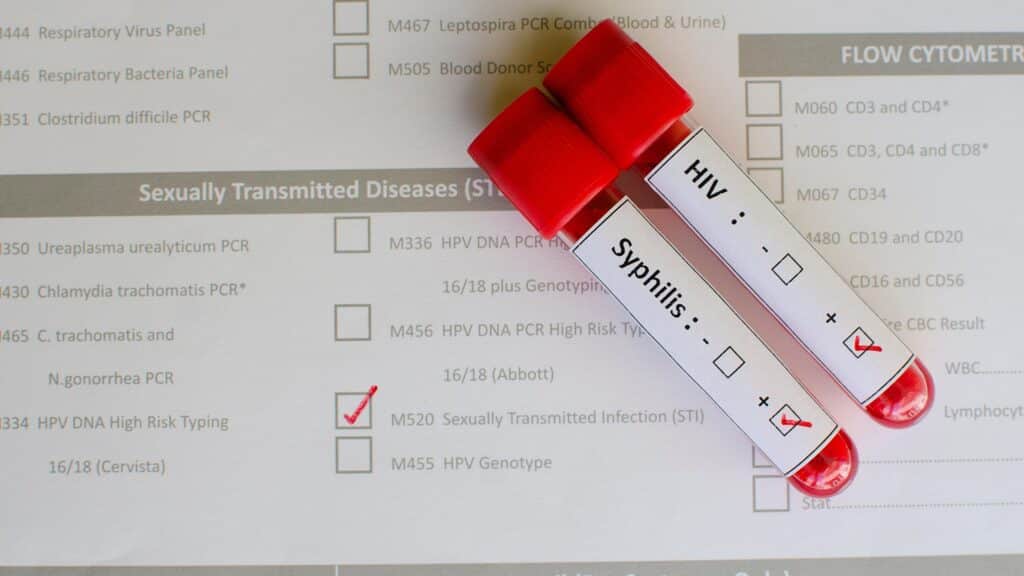Early STD Testing: Why Timely Detection Matters for Your Health
When it comes to sexually transmitted diseases (STDs), early detection and treatment are crucial for

Sexually transmitted diseases (STDs) are a topic that many individuals find uncomfortable discussing, frequently leading to the spread of misinformation and persistent myths. It is crucial to debunk these misconceptions, ensuring that individuals have accurate information to make informed decisions regarding their sexual health.
In this blog post, we will tackle common STD myths, separating fact from fiction and providing factual, evidence-based information to set the record straight. Topics to be addressed include transmission routes, symptom presence, treatment options, and prevention strategies.
Arming ourselves with the truth about STDs can help promote a more knowledgeable and responsible approach to our sexual health. By dispelling falsehoods and understanding the facts, we can make better choices for ourselves and our partners, reducing the prevalence and impact of STDs in our communities.
As we debunk these common myths, we encourage readers to continue seeking accurate information and engaging in open conversations about sexual health, helping to break down stigmas and combat misinformation. Knowledge is power – and with this power, we can work together to create a culture of awareness and responsibility in managing our sexual well-being and that of our communities.
One of the most prevalent misconceptions about STDs is the belief that you can determine if someone has an STD by their appearance or the presence of visible symptoms.
The truth is that many STDs present no obvious or distinguishable symptoms, especially in the early stages. Some individuals may unknowingly carry and transmit an infection without experiencing any discomfort or signs of illness.
Given that many STDs may go unnoticed, regular testing is crucial for staying informed about your sexual health and catching an infection early, when it's easier to treat and mitigate potential complications.
While condoms are highly effective in reducing the risk of transmitting and contracting STDs, they are not foolproof.
It is essential to use condoms correctly and consistently to maximize their protective benefits. However, even with perfect use, condoms cannot provide complete protection against all STDs. Some infections, such as genital warts and herpes, can be transmitted through skin-to-skin contact, rendering condoms less effective in these instances.
To better safeguard against STDs, combine condom use with other prevention methods. Encourage open communication with partners about testing, and consider using dental dams for oral sex.
Another common misconception is that hormonal birth control pills can protect against STDs.
While birth control pills are highly effective in preventing unintended pregnancy, they offer no protection against STDs. It's essential to understand the limits of your chosen method of contraception and employ additional protective measures, such as condoms, to reduce the risk of STD transmission.
Utilizing dual protection – meaning the use of both an effective contraceptive method (e.g., birth control pills, IUD, etc.) alongside barrier protection (e.g., condoms) – is the most comprehensive approach toward preventing both unintended pregnancies and STDs.
Many people wrongly assume that oral sex is free from the risk of STD transmission.
While the risk of contracting an STD from oral sex may be lower than that of vaginal or anal intercourse, it is not zero. Several STDs, such as gonorrhea, syphilis, herpes, and human papillomavirus (HPV), can be contracted through oral sex.
To mitigate the risk of STD transmission during oral sex, use barrier protection methods, such as latex or polyurethane condoms and dental dams. Having open and honest conversations with your partner about STD status and practicing good oral hygiene can also reduce the risk.
Dispelling common STD myths and misconceptions is vital for fostering a culture of well-informed, responsible decision-making regarding sexual health. By debunking these falsehoods, we can create an environment more conducive to understanding the importance of preventive measures, regular testing, and honest communication.
As we strive to separate fact from fiction, it's essential to actively seek accurate information and reliable resources. Keeping ourselves educated and well-informed is the first line of defense against the spread of STDs and the key to promoting healthy, responsible choices, both for ourselves and our partners. With us at Rapid STD Testing, let's be proactive in our pursuit of accurate knowledge, working together to build a healthier, better-informed world for all. Get private STD testing today.

No embarrassing exams, long waiting lines, or multiple visits. Just a quick lab visit for fast results.
Discover a lifestyle-focused approach to quality content at RapidSTDtesting.com. Unlike others, we don't rely on gimmicks or fabricated data to lure visitors. Our commitment goes beyond clicks – we're dedicated to answering the questions you search for online. With a team comprising medical experts and content specialists, our articles are meticulously crafted to promote STD testing, educate, and dismantle social stigmas.
Embrace a confidential atmosphere with our private testing options, ensuring your privacy is paramount. Every article is meticulously fact-checked and approved by medical advisors, guaranteeing accuracy and reliability. Our team, comprised of doctors and medical professionals, ensures that each piece of content serves a purpose – to inform, educate, and promote awareness.
Join us as we bridge the gap between medical expertise and lifestyle choices. RapidSTDtesting.com is your trusted source for informative, medically vetted content.